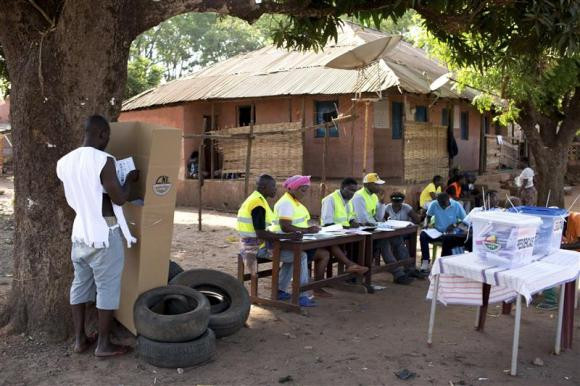IMF Grants $5.4m Aid to Guinea-Bissau to Help Address BoP Crisis

The International Monetary Fund has approved an emergency cash aid of $5.4m for Guinea-Bissau in order to help the country bridge urgent fiscal gaps.
The approval enables immediate disbursement of the full amount, which is equivalent to 25% of the West African country's quota in the IMF.
"The IMF financial assistance is aimed at restoring macroeconomic stability. It will help address urgent budgetary and balance of payments gaps, reduce poverty by resuming key government services and strengthen the capacity of the government of Guinea-Bissau," an IMF press release said.
The newly elected government in Guinea-Bissau inherited very difficult conditions, the Fund said.
"After two years of economic disruption, eroded government revenues, a compression in social spending and accumulated external and domestic arrears, real GDP fell by 2% and poverty increased markedly."
The IMF, however, expects the country to grow 2.5% in 2014 as the new government has started to rebuild government revenues, which, together with renewed donor assistance and the placement of treasury bills in the regional market, allowed for the elimination of almost all salary arrears.
"To maintain macroeconomic stability, the government must continue with a prudent fiscal policy that limits spending to available resources. Clearing outstanding all arrears of 2013 and 2014 by year-end will be an important step," said Min Zhu, Deputy Managing Director at IMF.
By avoiding extra-budgetary expenditure and improving cash management, the government can prevent re-emergence of arrears, the Fund said.
"In this regard, the reinstatement of the treasury committee and the preparation of cash management plans are steps in the right direction."
The IMF said Guinea-Bissau needs to supplement international financial support with further efforts to mobilise domestic revenues and strengthen public financial management.
"The medium-term prospects for poverty reduction and economic development in Guinea Bissau hinge on addressing economic and political vulnerabilities. In addition to the security sector reform, this calls for structural reforms on a broad front to diversify the economy and improve governance and the business environment."
© Copyright IBTimes 2025. All rights reserved.






















